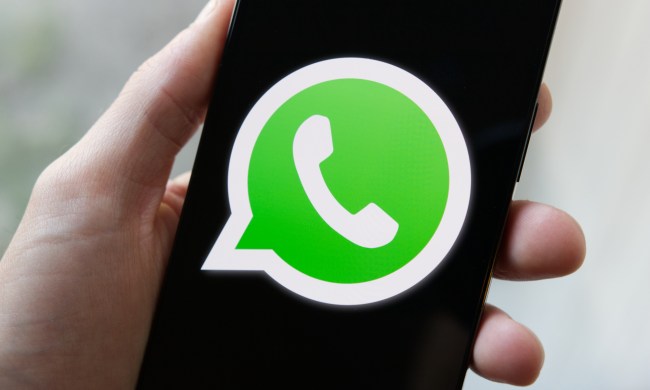Mobile apps are the universal gateway to multi-purpose functionality. With Apple’s iOS apps, permissions allow you to seamlessly tag photos and videos with your location, permit video apps to use your camera and microphone, allow map apps to determine your exact location to give you proper directions, and let weather apps give you the correct forecast so you know whether to dress warmly or grab an umbrella. When apps know what they need to know about you, they can do a better job. But sometimes apps can go overboard seeking information they don’t need or gather it constantly, and that’s where you need to take control.
Take a few minutes to get an idea of what you’re already sharing with your iOS apps, and whether that information is absolutely necessary and if there’s anything you need to change. You can grant and revoke permissions at any time. On iOS, apps request permissions at the time of need, including to show notifications and often when you install or use a new app. Here are a few ways to control your app permissions in iOS 14.5 — which is similar to, but somewhat more detailed and specific, than previous versions.
App privacy permissions
- From the Settings app, tap Privacy to see all the permissions available on your phone.
- Tap on any entry to see the apps granted those permissions.
- Disable any unneeded permissions. You can always grant them again later.
Location Services
App privileges don’t have to be all or nothing: With Location Services, for example, you can decide whether apps can access your location always, never, just while you’re using the app, or in some instances to Ask Next Time. The While Using the App setting means an app can access your location only while the app is running and on-screen — when you switch to a different app, your location is no longer available to the previous app.
A new Precise Location option added in iOS 14 lets you pinpoint your exact location as opposed to your approximate location, something that can be helpful for your camera or for weather or navigation apps — but is not needed for, say, streaming videos. In the past, precise location was the default, so with the newest iOS, Apple adds additional privacy to your whereabouts.
App privacy settings
This can all get pretty granular.
- For location data, you can grant access to an app all the time or only when the app is open.
- With Apple Health data, you can grant an app access to some data and not other data.
- Scroll down the Settings screen beyond the Privacy menu for individual apps.
- For the Cellular category, scroll down to the list of apps and toggle data access for specific apps on or off.
- For apps like News, Apple TV, and others, you can direct Siri & Search to Learn from this App to make suggestions both within and across apps, based on your previous use.
- Tap on any app to access permissions and some extra options, such as access to notifications, permission to use cellular data as well as Wi-Fi, and to learn from the app and show suggestions on the Home screen.
- Tap on an option or toggle switch to grant or refuse permission.
You can select which apps can use cellular and other data. This is helpful if you have a limited data plan and are trying to conserve it. Those apps that can’t use cellular data will only update and perform other tasks when you’re connected to Wi-Fi.
Apple data and analytics
With iOS, you can also choose to send diagnostic and usage data to Apple and have your usage tracked so that you only see advertising customized to your interests. In iOS 13 and 14, apps can continue to tell the OS that they want to use your location, but you will only get a single prompt for any app: Allow While Using App, Allow Once, or Don’t Allow. If you choose Allow Once, the app will prompt you whenever you launch it.
In addition to fine-grained controls that let you grant apps access to your location once or anytime you use it, the iOS will notify you when an app is using your location in the background, so you can decide whether to change your permissions. The controls also prevent apps from accessing your location without your consent via Wi-Fi or Bluetooth. You can even control whether you share your location when you share a photo snapped with your phone.
App Tracking
Brand new in iOS 14.5, iPadOS 14.5, and tvOS 14.5 is a feature called App Tracking Transparency (ATT), which lets you choose whether or not apps are allowed to track you across other apps and services. This sort of tracking is popular with apps like Facebook and Google, which use it to collect data for advertising and applies to tracking outside of the company’s own apps. Whereas Facebook can track your activity on Facebook as well as its own Messenger, Instagram, and WhatsApp apps without permission, it must ask first before tracking you across other sites or services it does not own.
- Launch Settings and tap on Privacy.
- Choose Tracking at the top of the screen.
- Apps that seek permission to track you are listed there.
- Toggle tracking on and off for any or all.
- Toggling the request off gives you additional options.
Why controlling app permissions is important
Your iPhone does more than just make it simple to share valuable data like your location, work schedule, contacts, photos, and documents — it also protects your privacy by allowing you to select who sees your information. Many apps require specific access to view private data to operate correctly. But they must tell you what information they need and why they need it before they can access your data. For example, Instagram needs your permission to access the photos on your phone if you want to post on that platform. If you agree, Instagram can access your photos until you disable the option. You can always grant or revoke access anytime, via your Settings.
Apps that seek more information than they need to operate can endanger your privacy and safety. Mostly, apps will request access to your location, camera, microphone, camera roll, contacts, and sometimes health information.
If you share your location with an app, it can further share that information with others without your knowledge or approval. This is a significant violation of your privacy and can result in severe consequences. A New York Times study in 2018 found “at least 75 companies receive anonymous, precise location data from apps whose users enable location services to get local news and weather or other information.” The report says that these companies routinely sell, use, or examine such data to support the advertisers, retailers, and financial institutions they partner with. The Times stated that location-targeted ads totaled $21 billion in 2018. The flap over FaceApp, a photo filter app, is just one example of privacy problems.
Fortunately, Apple has turned its full attention to adjusting its privacy and security rules and has built user flexibility into successive versions of its mobile operating systems. With the most recent iOS 14.5, iPhone users can take charge of their app permissions and settings better and more easily than ever before. Overall, if you pay close attention to your permission settings, you can be increasingly confident your iPhone will guard your privacy.



























